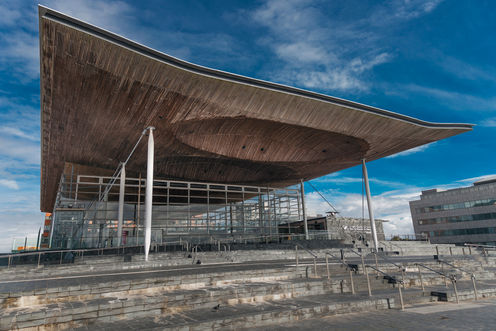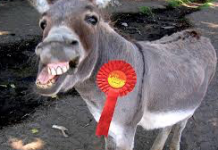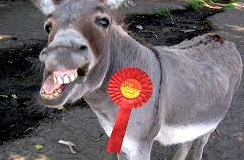- Problems for Deputy Dawg Labour - 18th April 2024
- Gun control - 17th April 2024
- Unhealthy - 16th April 2024

Split over Brexit, austerity and its place in the world, an unconventional situation has emerged in Britain: both the ruling party and the main opposition have adopted populist politics.
Populism traditionally pits the people against an elite that are seen as self-serving and undemocratic. It offers radical solutions for a system that’s believed to be corrupt. But with both Labour and the Conservative party now adopting the style, each has had to use populist practices in a slightly different way: prime minister Theresa May seeks to execute “the will of the people and defy the liberal elite by pushing through Brexit, while Jeremy Corbyn’s Labour Party is ”for the many, not the few“.
One way to understand this mainstreaming of populist politics is by viewing it as the corruption of the public sphere: the space for rational, constructive debate among equals. It is where public opinion should be formed and politics carried out. However, in a capitalist society this space can become corrupted by mass media, dominated by consumerism, power and unequal relations. It is a space which political parties often seek to bypass.
It is easy to spot these tendencies looking at the UK as a whole, but the situation in Wales is far more complex.
Gwleidyddiaeth
Though Wales has its own devolved government, with responsibility for a range of policy areas, it is difficult to talk of a discrete “Welsh public sphere”. In fact, former education minister Leighton Andrews claims that although a new devolved society has been successfully created in Wales, it has been done without a coherent public sphere.
In effect, Wales does not have well developed “spaces” for the forming of public opinion, and influencing of practical politics, and which might offer an alternative to the current widespread populism.

Shutterstock
One of the biggest and most obvious aspects that has contributed to the lack of public discourse is the weakness in Wales’s native media. The Welsh public debate is defined, to a great extent, by the British, London-based press.
There is also a general information deficit that is perpetuated by a lack of understanding of what happens in the Senedd (the Welsh Assembly, essentially a parliament) – although there have been recent moves to resolve this.
A new sphere
The media and government are not just to blame for this lack of public debate and involvement, however.
Migration, erosion of industry, dilution of religion, and declining Welsh language communities combined, have given Wales very different values, attitudes and desires compared to the rest of the country. The problem now is that without a coherent public sphere, Welsh political issues and debates are not being filtered through these values. Wales thinks about its own politics through a British or English lens – rather than looking at them from a Welsh perspective.
That being said, with the Welsh Assembly soon to reach its 20th birthday, the country finds itself in an interesting, potentially emancipatory, position. The country has the devolved power, now it can work to build a new public sphere. It does not have the benefit of a trigger like the Scottish independence referendum, but growing energy and engagement in Welsh political culture can serve as an inspiration.
In addition, the people of Wales are generally on more of an equal footing in terms of status and wealth than Britain as a whole. There is not, at present, a dense elite class innoculated from the everyday existence of the people, as there is to be found in England. Likewise, Welsh politicians, journalists, lobbyists are still to some extent rooted in the broader life of the society.
Elements of a communitarian, collectivist mindset also survive across Wales. This is exemplified, one might argue, in the country’s public policy with respect to the NHS, which has rejected elements of privatisation and attempted to stick to its founding principles.
The Welsh may also be more comfortable with the idea of society in a symbiotic relationship with the state than many parts of the more libertarian Anglo-American culture. Take, for example, the debate on the new organ donation law, which involved difficult questions about presumed consent on behalf of the state, but eventually led to successful legislation.
Future moves
There are substantive steps that politicians, civil society and the educational establishment must now take to construct this public sphere – building on native media and creating a national conversation, as well as ensuring more awareness of the assembly – while political education and civic obligation have a major part to play too.
Welsh principles and how they will “frame” the Welsh public sphere should be also debated. It cannot be a neutral space starting from nowhere. Wales must decide what values are most important, and plan how history and intellectual hinterland can lay the foundation stones for a public sphere.
Already a nation proud of its heritage, Wales will need to embrace its history in a new and positive way. This is an opportunity for the country to form the backdrop of development as a progressive nation, which will set it on course for an inclusive, democratic and progressive future.
![]()
Huw L Williams is a member of the Labour Party and works for the Coleg Cymraeg Cenedlaethol.












